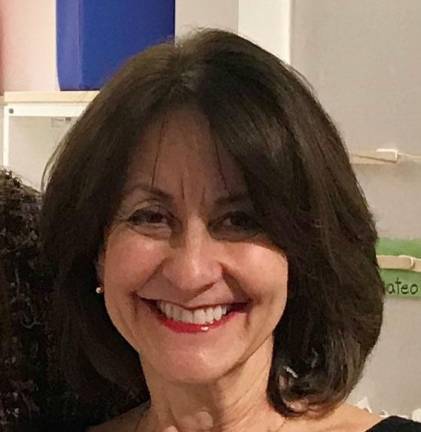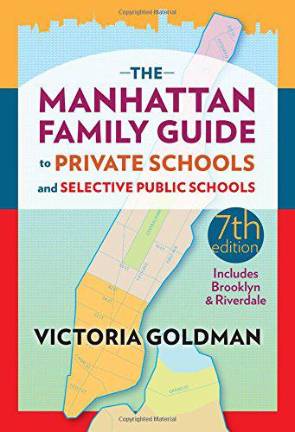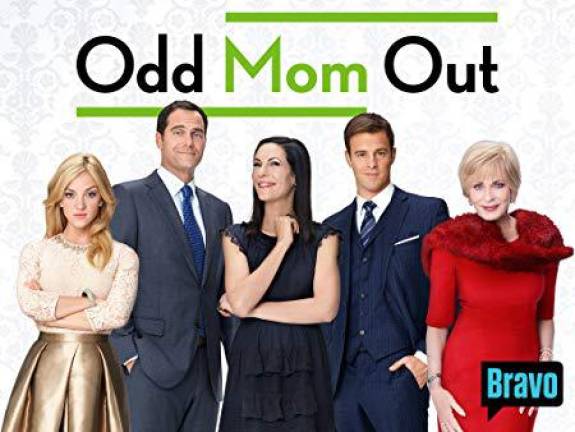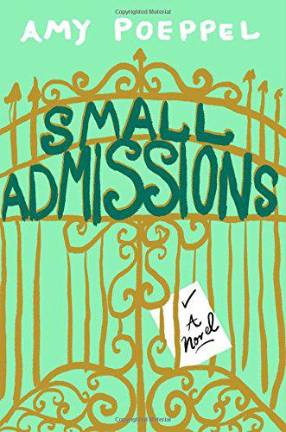Getting Into Private
Is the struggle to get accepted at the city's elite schools still real?






So, you’re thinking about applying to Manhattan independent schools, known for academic excellence, college prep and small classes. You’re feeling trepidatious, not only because it’s a big step for your child, but because you’ve heard stories, and seen the media’s skewering of the process dating back to "Baby Boom," when Diane Keaton is told her toddler will never get in anywhere because she’s starting too late. (The other moms’ kids were pre-registered while in the womb.)
Perhaps you read "The Ivy Chronicles," or "Small Admissions," where the admissions season is referred to as “the dark time.”
Or maybe you watched "Odd Mom Out," when Amy Elliot’s character hires Mario Testino to shoot her kid’s application photo.
The independent world used to be a handful of impressive UES schools, with a mountain of applicants; now, with so many more choices of Manhattan schools, it can’t possibly be that same nerve-racking drama. Or can it?
“Parents are still anxious, of course, but the process is definitely less stressful,” says Gina Malin, Executive Director of the Parents League of New York. She cites the main reasons: the aforementioned more options; standardized aptitude testing (aka the ERBs) is no longer a requirement; and the availability of online applications, which put an end to the notorious finger-on-redial-starting-9a.m.-the-day-after-Labor-Day ritual.
The basic procedure though hasn’t changed, for kindergarten, in particular. There is the tour, then perhaps invitations to events, a play visit for the child, and parent interview. There is also an essay that Malin advises parents write themselves. “If it’s not in your voice, it’ll show.” Same can be said for post-visit thank-you notes, and your first-choice letter.
Families and Values
As far as getting in, each school is looking for families who have genuine interest. Like everyone, schools want to be loved.
Although Malin admits, “diversity is important,” she’s quick to point out that diversity is more than race, color or creed. “It also can refer to a family’s make up, financial situation, or even the personality of the child.”
According to Malin, what is very important is, “How the family and its values fit in with that of the school.”
So, if the place is a proponent of community service, make sure they know of your pro bono work. If, however, you’d rather write a check to charity than don a hair net to serve lunch at a shelter, then probably that school is not for you.
Adriana Payne, K through 12 Advisor at Smart City Kids (SCK), adds, “The process is not a barrier to entry, but about matchmaking. It’s about whether a school aligns with who the child is and what the family’s priorities are for the child.”
But how do you know which schools are right for your student?
Malin says, “If you’re organized and do the research, you can most likely do it yourself.”
A good place to start with that is the go-to book: "The Manhattan Family Guide to Private Schools and Selective Public Schools," by Victoria Goldman.
For even more guidance, you can hire an admissions coach, such as SCK, and of course, become a member of the Parents League of New York, about which Malin offers: “Our mission is to help parents with information, the process, and to open their minds to expand their list of schools that are a good match beyond just the ones that are well-known.”
Another subject that always has been ripe for ridicule is bribery. You know, those parents rumored to offer admissions personnel their ski chalets in Gstaad, and the like.
For anyone even thinking about being the Lori Loughlin of the lower school set, Malin gave a polite, but firm, “No.”
Tips for Parents
As most parents have the same basic questions regarding this academic journey, here are some answers to the most common concerns:
1. Prepare for the tour and the interview.
“Schools are more accessible because of websites and social media,” says Payne. So, before you visit one, familiarize yourself. She adds that during the tour, “be an active listener and really observe,” to get a feel for the school’s personality. Also, be respectful of the space—don’t wander off and, “stay off digital devices.”
2. Rehearse talking about your child.
“They want to know who your child is as a whole person,” says Payne. Instead of a laundry list of admirable traits, “He’s kind; she’s happy, etc.,” show these qualities via current anecdotes.
3. Dress for success.
Business or business casual for parents.
Keep it simple for kids: clean, neat, comfortable clothes, with no distracting jewelry/accessories. “Party outfits” are unnecessary.
4. Remember all admissions staff members are trained professionals.
Being on the tour with the Admissions Director will not increase your chances, so don’t be (visibly) disappointed if you are with one of his/her associates.
5. Prepare for your child’s visit.
Expect that he/she will be asked to write their name, draw a person, do a puzzle or block design, participate in language skills exercises, such as retelling a story that was just read to them. If it's a group visit, the child will be observed for politeness, sharing, and following directions. Payne stresses: “If you’re anxious, your child will pick up on that.”
Lorraine Duffy Merkl is the author of the mom-centric novel "Back to Work She Goes."